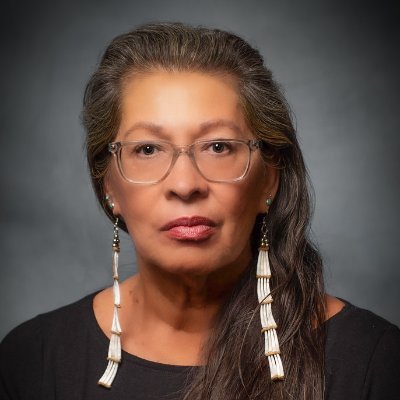Guest Opinion. The U.S. Senate has added an attack on Tribal Sovereignty to it’s Big Ugly Budget.

If passed, this provision would put over 250 million acres of public land, across 11 states, up for sale -- mandating the sale of at least 3 million of those acres. They want to open federal land -- including Tribal land -- for fossil fuel and mineral exploration, extraction, and foreign interests, while claiming to open it up for infrastructure and housing development.
This would represent the largest sale of national public lands in modern history while failing to give sovereign Tribal Nations the right of first refusal to bid on these lands, even for areas that are a part of Tribes’ traditional homelands or contain sacred sites critical to ceremonies, nutrition, medicine, and environmental stewardship.
And why is the federal government considering the sale of hundreds of millions of acres of land? This proposed sale would directly benefit fossil fuel and mining corporations, and land developers with the money from the sales funding massive tax handouts to the rich and corporations.
This bill would impact cherished public lands -- including Tribal lands -- in Alaska, Arizona, California, Colorado, Idaho, Nevada, New Mexico, Oregon, Utah, Washington State, and Wyoming. It threatens National Parks like Zion National Park in Utah and Yosemite National Park in California by selling land adjacent to the National Parks to fossil fuel and mining corporations -- forever destroying land that Native peoples have stewarded since the beginning of time.
These proposed land sales would include no public hearings or formal process by which Tribes and the general public could challenge land sales. Sacred places, burial grounds, medicinal plant habitats, and wildlife corridors could be sold to developers and destroyed.
We paid for the right to Free Prior and Informed Consent with our blood and our land. Now they want to trample those treaty rights for corporate profit.
Judith LeBlanc (Caddo), executive director of Native Organizers Alliance Action Fund, whixh is a partner to Native Organizers Alliance.
More Stories Like This
Sanctuary Cities Under Siege: When Federal Power Becomes a Weapon Against the PeopleDenmark's Genocidal Practices in Greenland
Cherokee Nation Stands Against Predatory Lending
Tribes Seek Better Data, Real Accountability in MMIP Cases Ahead of Tribal Consultation
What Would Dr. King Say About ICE?
Help us defend tribal sovereignty.
At Native News Online, our mission is rooted in telling the stories that strengthen sovereignty and uplift Indigenous voices — not just at year’s end, but every single day.
Because of your generosity last year, we were able to keep our reporters on the ground in tribal communities, at national gatherings and in the halls of Congress — covering the issues that matter most to Indian Country: sovereignty, culture, education, health and economic opportunity.
That support sustained us through a tough year in 2025. Now, as we look to the year ahead, we need your help right now to ensure warrior journalism remains strong — reporting that defends tribal sovereignty, amplifies Native truth, and holds power accountable.
 The stakes couldn't be higher. Your support keeps Native voices heard, Native stories told and Native sovereignty defended.
The stakes couldn't be higher. Your support keeps Native voices heard, Native stories told and Native sovereignty defended.
Stand with Warrior Journalism today.
Levi Rickert (Potawatomi), Editor & Publisher

